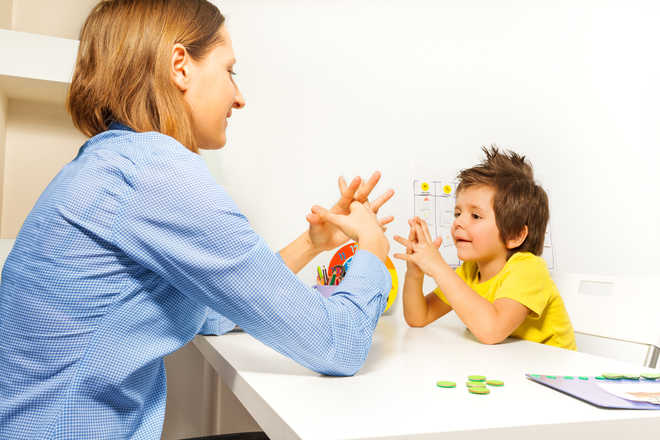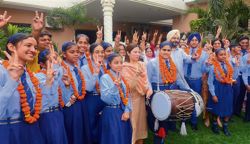
Photo source: Thinkstock
Houston
A new virtual reality training programme may improve social skills in children with autism, a new study has claimed.
Although most children with high-functioning autism have above average intellectual capabilities, they often experience social difficulties.
Deficits in social communication and difficulty inhibiting thoughts and regulating emotions can lead to social isolation and low self-esteem.
However, the new study by The University of Texas at Dallas in the US shows that a new virtual reality-training programme is producing positive results.
"Individuals with autism may become overwhelmed and anxious in social situations," research clinician Dr Nyaz Didehbani said.
"The virtual reality training platform creates a safe place for participants to practice social situations without the intense fear of consequence," said Didehbani.
The participants who completed the training demonstrated improved social cognition skills and reported better relationships, researchers said.
Neurocognitive testing showed significant gains in emotional recognition, understanding the perspective of others and the ability to solve problems.
For the study, 30 young people ages seven to 16 with high-functioning autism were matched into groups of two. The teams completed 10 one-hour sessions of virtual reality training for five weeks.
Participants learned strategies and practiced social situations such as meeting a peer for first time, confronting a bully and inviting someone to a party. Participants interacted with two clinicians through virtual avatars.
One clinician served as a coach, providing instructions and guidance, while the other was the conversational partner who played a classmate, bully, teacher or others, depending on the scenario in the world that is similar to a video game.
"This research demonstrates that virtual reality may be a promising and motivating platform for both age groups," said Tandra Allen, head of virtual training programmes.
"This was the first study to pair participants together with the goal of enhancing social learning. We observed relationships in life grow from virtual world conversations.
"We saw a lot of growth in their ability to initiate and maintain a conversation, interpret emotions and judge the quality of a friendship," said Allen.
"It's exciting that we can observe changes in diverse domains including emotion recognition, making social attribution, and executive functions related to reasoning through this life-like intervention," said Daniel C Krawczyk, associate professor in the School of Behavioural and Brain Sciences.
"These results demonstrate that core social skills can be enhanced using a virtual training method," said Krawczyk.
The finding was published in the journal Computers in Human Behaviour. — PTI



























